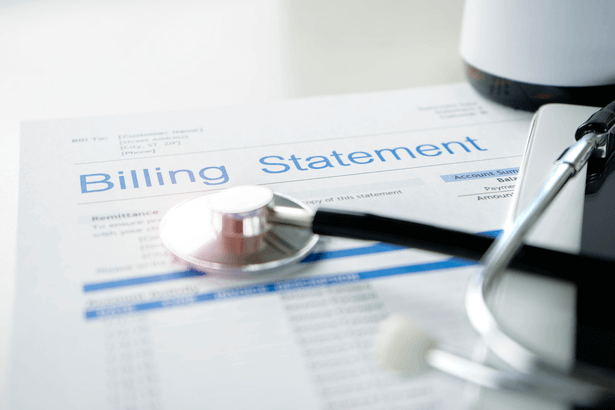Living in the United States, you are probably familiar with the mountain of receipts for taxes you receive throughout the year. When tax time comes around, you'll need to keep records of those receipts so that you can get your tax returns and maximize your tax deductions.
With that in mind, how do you know which receipts should stay and which ones should go? Do you have to keep all of the receipts, or should you only hang on to a select few? In this article, you will be able to find out more.
Note: If you want an automatic way to track receipts for tax records, try Bonsai Tax. Our app scans your bank account/credit card statements to discover tax deductions and organizes them. You won't have to worry about categorizing receipts or what qualifies for a write-off. Our app does it all for you. Users usually save $5,600 from their tax bill with our software. Claim your 7-day free trial today.
What Is a Business Tax Receipt?
A business tax receipt is a receipt that you get after buying anything for your small business. For example, let's say that you purchase a desk for your new office. In this case, you might want to keep the receipt, as it can be deductible when you are filing your taxes.
Receipts are very important when you are filing for tax returns. They act as proof that a certain expense was actually business-related. When the day comes, if they're used accordingly, you should be able to obtain your tax returns.
Note: If you want an app to automatically organize and store all of your receipts for tax deductions, sign up for Bonsai Tax today. On average, users of our receipt organizer saves ~$5,600 from their tax bill. Sign up for a free trial today.
Essential Documents You Need To Know
There are other essential documents that you might want to keep as a backup as well. These include the following:
- Canceled checks
- Invoices
- Sales slips
- Deposit slips
- Paid bills
- Cash register tapes
- Receipt books
- Deposit information
- 1099-MISC forms
If you keep these documents at hand, they may be useful if the IRS attempts an audit of your records. These can be fairly stressful for anyone, but as long as you provide the right documentation, there should be no need to worry.
What Receipts Should You Keep?
Here is a good piece of news for you: not every receipt you get is a receipt for tax return. Therefore, you do not need to hang on to every slip that gets in your hand.
As a general rule, you don't need receipts for payments under $75. The only exceptions to this are costs for lodging - but let's face it, who books a place for less than $75?
With that in mind, several costs may be deducted from your gross income, including:
Note: If you want a hands-free way of tracking the right receipts for your deductions, try Bonsai Tax. Our expense tracker scans your bank/credit card statements, organizes your receipts and maximizes your deductions from your tax bill. This can save you a lot of time and money when tax season rolls around. Try a 7-day free trial here.

Medical Expenses
By the time the deadline for tax return comes, you might want to save the receipts for medical expenses. Not only should you hang onto yours, but onto those of your spouse and children as well.
The IRS provides several self-employed tax deductions for medical co-pay and premiums - exempting you from federal tax. You can even receive a standard deduction for things such as contacts, glasses, and breast pumps.
With that in mind, here are some expenses that are tax-deductible:
- Medical tests and exams
- Hospital stays
- Chiropractic and acupuncture services
- Physical and occupational therapy
- Nursing care
- Weight-loss programs (only recommended by the doctor for treating certain conditions)
- Cost of guide dogs
- Cost of lodging in a different town for treatment
- Psychologist and psychiatrist sessions
Keep your documents at hand for at least six years. They might be able to prevent any unpleasant tax situation from occurring.

Childcare Expenses
While it is not technically a tax deduction, you may be able to receive credit for childcare costs. These expenses are only provided if both you and your spouse depend on them so that you may go to work.
Here are the costs you may receive credit for, as long as you can provide the receipts:
- Costs of a babysitter or daycare centers
- Housekeeper, cook, or cleaning person that looks after the child
- Before and after school care for children no older than 13
- Home care and nursing for disabled dependent children
- Summer or day camps that offer care while the parents are working
Both parents need to earn income, unless one of them is disabled or is a student following courses full-time. Also, this does not include education costs; it's limited strictly to caring for the child.
Business Expenses To Keep For Taxes
Even if you are self-employed, it does not mean you are not eligible for tax deduction. Self-employment, as long as it is recorded, is considered a legal business - which means you may deduct your taxes.
For example, if you are self-employed, then you'll likely have to pay for supplies, materials, office costs, utilities, and many more. Some of these costs are considered tax-deductible and can help you save money by the end of the tax year.
As a result, if you are self-employed, you might want to hang on to all the receipts concerning your business. This can include gross receipts, purchases, necessary payments, assets, as well as gift and entertainment expenses.
Even something as simple as canceled checks and deposit information should be kept for tax purposes. Make sure you don't throw them away from the very start.
Charitable Donations
You may have donated food or clothing to a local shelter. Or perhaps you donated cash for veterans. In that case, you should know that your taxes for those contributions are deductible.
However, there is a catch here. You can only get a tax return if you make a contribution to a tax-exempt charity organization. An organization with a 501(c)(3) status is certainly deductible.
That being said, other organizations may be exempt from tax as well, even if they have another status. To be sure on the matter, you might want to check with the IRS.

Travel Expenses
Travel costs can also be deducted - but once more, there is a catch. It has to be work-related for you to get your tax return. For example, if you decide to take a trip to Disneyland with your family, you cannot deduct that expense from your taxes.
However, if that trip to Disneyland happens because your boss told you to go there, or because you are meeting a business partner, then you may be eligible to deduct the costs from your taxes.
In this regard, we recommend you use a trip expense tracker to automatically keep all of the receipts concerning your trip. When the time for viewing your tax records arrives, you may use them to have your taxes deducted.
Keep any receipts concerning flights, fuel, accommodations, business meals, and parking. Other travel-related costs may also be exempt from tax, which is why you might want to get a tax advisor to help you. They will know more matters concerning taxes than the average person would know.
How Long Should You Keep Receipts for Tax Purposes?
The IRS suggests that, in order to avoid any issues at tax time, you may want to keep receipts for taxes for at least three years. With that in mind, you shouldn't hurry to throw away the income and expenses receipts immediately after that time passes.
For example, let's say that, at some point, you appear to have underpaid your taxes by at least 25%. It might be true, or it might be an error. However, should that happen, the IRS can track your tax records as far as 6 years.
The receipts you keep for taxes don't have to be stashed into mountains of paperwork. Are credit card statements sufficient for the IRS? Well, paper receipts used to be a standard, but not anymore. These days, the chances are very high that your records are just one click away.
For example, the IRS may mine your bank account and your credit card for any potential expenses. This is why it is recommended you keep a separate account for your small business; you'll know that every expense there was work-related.
For safety purposes, if you wish to close a business-related checking account or credit card, you may want to save your bank statements. This way, you won't risk losing valuable information. A PDF document does not take as much space as a file drawer, so it should not inconvenience you in any way.
How to Organize Your Receipts for Taxes?
When you have taxes to file at the end of the tax year, you might be overwhelmed by the number of receipts that you'll have to present. With so many around, it can be very difficult to keep track of them.
By being organized with tax receipts, you should be able to make your job much easier for you in the long run. Here are some tips you could follow:
Save the Receipts
The first thing you should do when organizing your receipts is to keep them in the first place. You might be tempted to throw them away, but keep them for at least 6 years.
That's right, if you only keep the receipts for one year, it won't be enough. If they ask for proof of expense, you need to be able to give them at all times. Whether it's a digital receipt or a hard copy one, hang on to them for as long as possible.
We recommend you try Bonsai's 1099 expense tracker to automatically organize your purchases and save all your important deductions. The software will categorize and organize all your

Use a Business Credit Card and Account
Many people, particularly new business owners, use the same account for both personal reasons and business transactions. Still, it's easy to lose track of it when you can no longer tell which is which. If you mistake a business transaction for a personal one, you'll be missing out on returns you are actually entitled to.
By having a different account and credit card for these expenses, it should be much easier to keep track of them. Plus, when those accounts only have business expenses on them, you might be able to get more benefits and returns.

Write Notes on Your Receipts
As you probably know by now, entertainment and meal expenses for business purposes are deducted as well. However, it might not be easy to remember which meal was personal and which one was for business.
To make it easier for you to keep track, you might want to write down on the receipt the details of the meeting. Who you met, why you met, things like that. This way, you'll have an easier time staying organized.
Go Digital
Very often, most of the difficulties in tax organization appear because you lost a receipt, it faded, or other reasons like that. Plus, when there are too many of them, eventually they begin to take too much space. This applies mostly to receipts you've been hanging on for years.
This is why a good piece of advice would be to go digital with your receipts. In fact, many tax deduction tracker tools are digital. Rather than packing a couple of boxes in a drawer, you can simply keep them in a folder from your computer. Just make sure that you back them up on an external memory stick or a cloud account, in the event that something happens with your computer.

Go Through the Expenses Once a Month
When organizing receipts for taxes, think of yourself as a student who is getting ready for an exam. If you do all the studying and reviewing on the night before the exam, the chances are that you won't remember much of it when you'll have to present your idea.
The same thing applies to receipts. If you just stash them randomly in the receipt box and just leave them there for months, you won't know what receipt goes where. At some point, your memory of the details can fade.
This is why you may want to review your expenses once a month. On average, it'll just take about 30 minutes of your time. Review your receipts, put them into categories - and when the tax year is over, you'll already know where every receipt is supposed to go.
Conclusion
Tax calculations can be fairly intimidating, especially if you are still new to this world. Still, as long as you stay organized, it should not be that complicated either.
Before throwing away potential receipts for taxes, think about whether they qualify for tax deduction or not, and whether you held on to them long enough or not. It might seem to you that it's taking drawer space, but it's better to be safe than sorry. if you have any questions about how to organize receipts, deductions or documentation, contact a tax professional.






